MURIEL RUKEYSER ~ ON POETRY


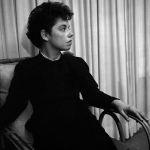
“I am a writer and I want to write.” ― Jane Bowles Fear and Hope “Like most people, you
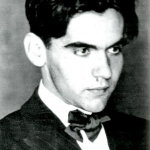
Federico Garcia Lorca “Let there be a landscape of open eyes and bitter wounds on fire. No one is sleeping
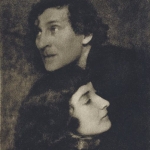
MARC AND BELLA CHAGALL ~ A COLORFUL LOVE “In our life there is a single color, as on an artist’s


“I am a writer and I want to write.” ― Jane Bowles Fear and Hope “Like most people, you

Federico Garcia Lorca “Let there be a landscape of open eyes and bitter wounds on fire. No one is sleeping

MARC AND BELLA CHAGALL ~ A COLORFUL LOVE “In our life there is a single color, as on an artist’s


Federico Garcia Lorca “Let there be a landscape of open eyes and bitter wounds on fire. No one is sleeping
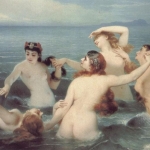
THE SIRENS ARE ENCHANTERS Circe warns Odysseus about the Sirens: “You will come first of all to the Sirens, who
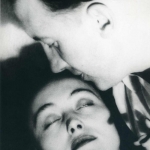
A poem by Paul Eluard “I cannot be known Better than you know me Your eyes in which we sleep


A poem by Paul Eluard “I cannot be known Better than you know me Your eyes in which we sleep

“I cannot make you understand. I cannot make anyone understand what is happening inside me. I cannot even explain it

“It is living and ceasing to live that are imaginary solutions. Existence is elsewhere.” Andre Breton Photo by Henry Cartier

She was born on April 29, 1936 to Russian Jewish immigrant parents in Avellaneda, , a suburb of Buenos Aires, Argentina. A year after entering the department of Philosophy and Letters at the Universidad de Buenos Aires, Pizarnik published her first book of poetry, La tierra más ajena (1955). Soon after, she studied painting with Juan Battle Planas. Pizarnik followed her debut work with two more volumes of poems, La última inocencia (1956) and Las aventuras perdidas (1958).
From 1960 to 1964 Pizarnik lived in Paris. There she worked for the journal Cuadernos, sat on the editorial board of the magazine Les Lettres Nouvelles, and participated in the Parisian literary world.
She died in Buenos Aires of a self-induced overdose of seconal.
Source Wikipedia

Federico Garcia Lorca “Let there be a landscape of open eyes and bitter wounds on fire. No one is sleeping

A poem by Paul Eluard “I cannot be known Better than you know me Your eyes in which we sleep
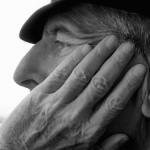
Leonard Cohen (1934 – 2016) “Like a bird on the wire, Like a drunk in a midnight choir, I have


Federico Garcia Lorca “Let there be a landscape of open eyes and bitter wounds on fire. No one is sleeping

THE SIRENS ARE ENCHANTERS Circe warns Odysseus about the Sirens: “You will come first of all to the Sirens, who

A poem by Paul Eluard “I cannot be known Better than you know me Your eyes in which we sleep

Take a poem and look very closely into it…the vowels, the letters. Study it closely….It probably can replicate itself (though not easy) you are my eyes. Directing your voice without distraction in it. Sense and feel the difference between the visual informational moments the image, the personality, the personal history, hurt, anger, etc. A separate reality more real than sun on skin, with the indefinite power of wind and stars. Far more reflective than a pond of still water, more substantial than a rock.
Poetry has allowed me to diffuse my fears, express disillusionment, and be heard. To differentiate between what the mind and the eyes see. To love long after the partner is gone, to mourn, to connect tickling and telling the reader the truth. Forget all the rules. Forget about being published. Close the door. Write with no one looking over your shoulder. Don’t try to figure out what other people want to hear from you; figure out what you have to say. Write for yourself and celebrate writing. It is one of the oldest most sacred connections with self. A ancestral journey through time from your eyes down the arm via the hand and pen onto paper then back through the eyes.
Poetry Reconciles Us to the World. Poetry has always possessed the deeper roots and the larger promise. The arts are not reductive, but seek pattern, order and consistency in the very midst of variety. Poetry may not change the world — much though Marxists insist that it should — but it can enable us to see life whole, with clarity and understanding. The great theatre of the world is written in language, and its poetry reconciles us to the manifest absurdities and cruelties of our natures.
Art can set aside the struggle for individual preeminence, said Schopenhauer, and learn to see life as it is directly given to us through timeless ideas.
Poetry makes the world more visible and can capture ‘wonder.’ Ordering thoughts and ideas, we choose our words with discernment and fit with a sense of proportion. Shadows are brought into the light echoes traced to their origin, muddied streams run clear again. Like following a trail to the summit like tracing a stream to find the source. Words, the travel sometimes level and easy the simple becoming difficult, the difficult easy. Words calming the hearts dark waters: dredging from the depths the proper name of things.
“From the eyes
to the mind
of the pen
down the arm
to the heart
of the hand
in the paper”
© Copyright Tom Sheldon

“I am a writer and I want to write.” ― Jane Bowles Fear and Hope “Like most people, you
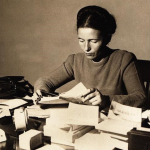
THE SIMONE DE BEAUVOIR EFFECT “I am incapable of conceiving infinity, and yet I do not accept finity.” SIMONE

Federico Garcia Lorca “Let there be a landscape of open eyes and bitter wounds on fire. No one is sleeping


“I am a writer and I want to write.” ― Jane Bowles Fear and Hope “Like most people, you

THE SIMONE DE BEAUVOIR EFFECT “I am incapable of conceiving infinity, and yet I do not accept finity.” SIMONE

Federico Garcia Lorca “Let there be a landscape of open eyes and bitter wounds on fire. No one is sleeping

“There is nothing more poetic and terrible than the skyscrapers’ battle with the heavens that cover them. Snow, rain, and mist highlight, drench, or conceal the vast towers, but those towers, hostile to mystery and blind to any sort of play, shear off the rain’s tresses and shine their three thousand swords through the soft swan of the fog.”
Federico Garcia Lorca

“I am a writer and I want to write.” ― Jane Bowles Fear and Hope “Like most people, you

Federico Garcia Lorca “Let there be a landscape of open eyes and bitter wounds on fire. No one is sleeping

MARC AND BELLA CHAGALL ~ A COLORFUL LOVE “In our life there is a single color, as on an artist’s

We don’t read and write poetry because it’s cute. We read and write poetry because we are members of the human race. And the human race is filled with passion. And medicine, law, business, engineering, these are noble pursuits and necessary to sustain life. But poetry, beauty, romance, love, these are what we stay alive for.
Dead Poet’s Society

“I am a writer and I want to write.” ― Jane Bowles Fear and Hope “Like most people, you

Federico Garcia Lorca “Let there be a landscape of open eyes and bitter wounds on fire. No one is sleeping

MARC AND BELLA CHAGALL ~ A COLORFUL LOVE “In our life there is a single color, as on an artist’s